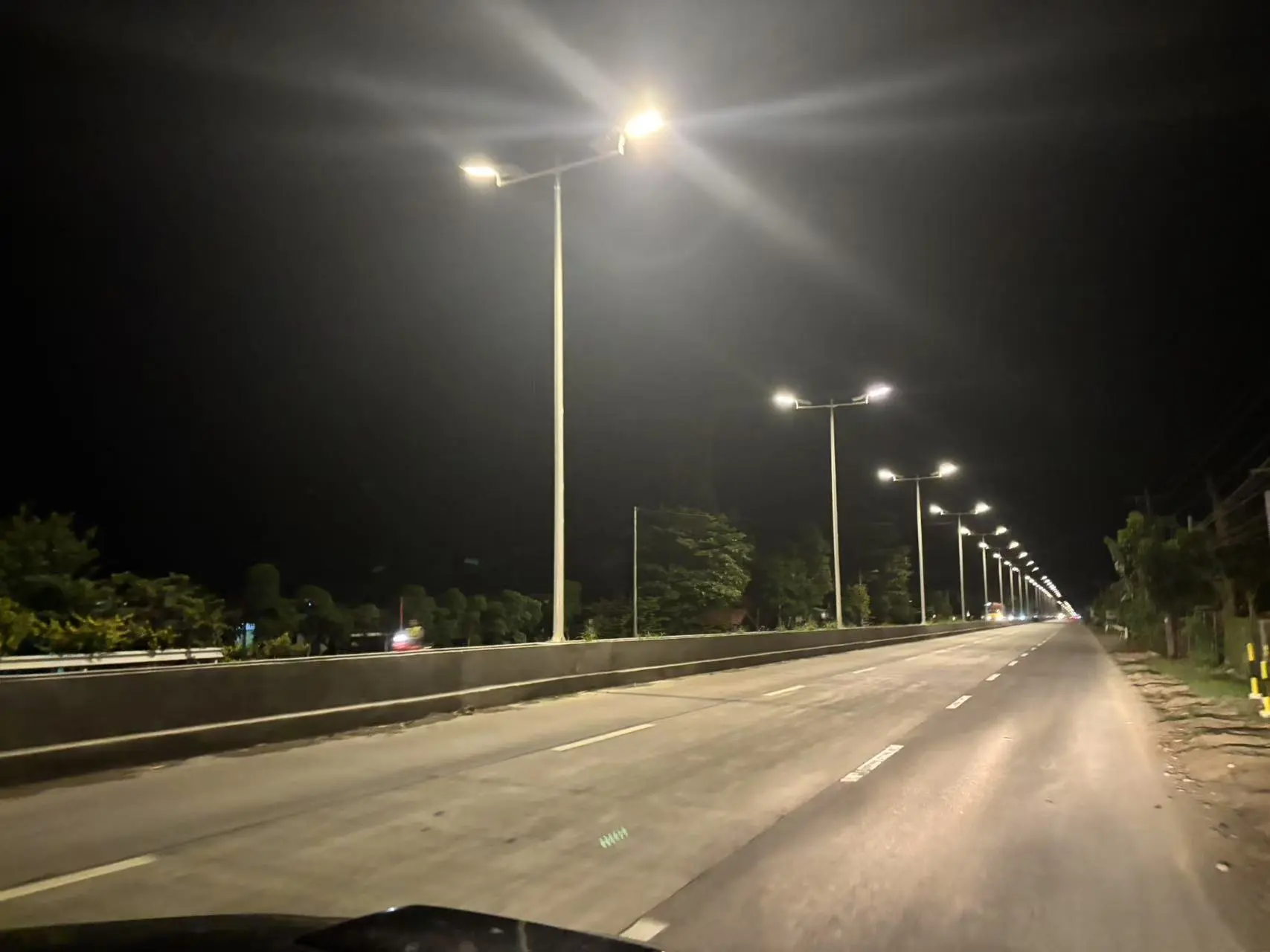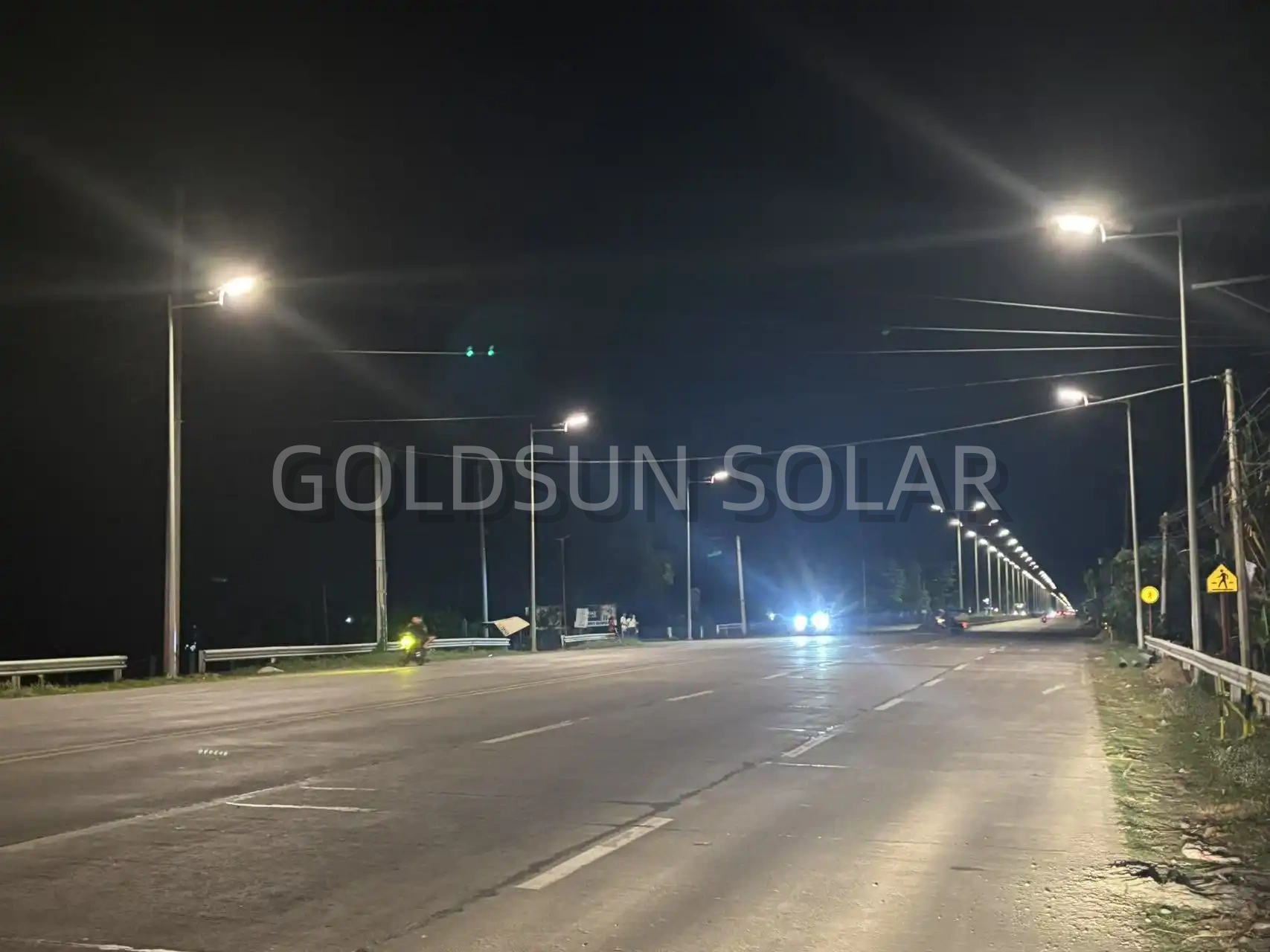Solar Panel Street Light Pole Smart Control Integration Guide
Welcome to our comprehensive guide on integrating smart control systems with solar panel street light poles. As urban areas strive for energy efficiency and sustainability, solar-powered street lighting has become increasingly popular. This guide will explore the key aspects of implementing smart control technologies in solar street light systems, enhancing their functionality, efficiency, and overall performance. We'll dive into the intricacies of integrating various smart control features, discuss the benefits of such systems, and provide practical insights for successful implementation.

How do solar panel street light poles work?
Solar Energy Collection and Conversion
Solar panel street light poles harness the power of the sun through photovoltaic panels mounted on top of the pole. These panels convert sunlight into electrical energy, which is then stored in batteries for use during nighttime hours. The process begins with the solar cells in the panels absorbing photons from sunlight, creating an electric field that generates a flow of electrons. This direct current (DC) electricity is then converted to alternating current (AC) by an inverter if necessary, depending on the specific lighting system requirements. The efficiency of solar energy collection and conversion is crucial for the overall performance of the street light, as it determines the amount of energy available for illumination and smart control features.
Energy Storage and Management
One of the key components of solar panel street light poles is the energy storage system, typically comprising high-capacity batteries. These batteries store the excess energy collected during daylight hours for use during nighttime or periods of low sunlight. Advanced energy management systems in smart solar street lights optimize the charging and discharging cycles of the batteries, ensuring maximum efficiency and longevity. Some systems incorporate intelligent algorithms that predict energy needs based on historical data and weather forecasts, allowing for more effective energy distribution. This smart energy management is essential for maintaining consistent lighting performance throughout the night, even during extended periods of cloudy weather or seasonal variations in sunlight intensity.
Lighting Control and Automation
Smart control integration in solar panel street light poles enables sophisticated lighting control and automation. These systems typically include sensors that detect ambient light levels and motion, allowing the lights to adjust their brightness automatically or turn on and off as needed. This not only conserves energy but also enhances the longevity of the lighting components. Many smart solar street lights also feature programmable schedules, allowing administrators to set specific lighting patterns based on time of day or seasonal requirements. Some advanced systems even incorporate adaptive lighting technologies that can adjust illumination based on real-time traffic conditions or public safety needs, further optimizing energy usage while maintaining adequate lighting for pedestrians and vehicles.
What are the benefits of smart control integration in solar panel street light poles?
Energy Efficiency and Cost Savings
Integrating smart control systems into solar panel street light poles significantly enhances energy efficiency, leading to substantial cost savings for municipalities and organizations. These intelligent systems optimize energy consumption by adjusting light output based on ambient conditions and usage patterns. For example, during low-traffic periods, the lights can automatically dim to conserve energy, brightening only when motion is detected. This dynamic adjustment not only reduces energy waste but also extends the lifespan of the lighting components and batteries. Furthermore, the ability to remotely monitor and control these lights reduces maintenance costs by enabling predictive maintenance and eliminating the need for regular manual inspections. Over time, these efficiency improvements can result in significant reductions in operational expenses, making solar panel street light poles with smart controls a cost-effective long-term investment for urban lighting infrastructure.
Enhanced Safety and Security
Smart control integration in solar panel street light poles plays a crucial role in improving public safety and security. These advanced systems can be programmed to increase illumination in high-risk areas or during specific times, deterring criminal activities and enhancing pedestrian safety. Motion sensors can trigger brighter lighting when people or vehicles approach, ensuring well-lit pathways and roads. Some smart solar street lights even incorporate emergency response features, such as the ability to flash or change color to guide first responders or alert the public during emergencies. Additionally, the consistent and reliable lighting provided by these smart systems reduces the risk of accidents caused by poorly lit streets or malfunctioning lights. The remote monitoring capabilities of smart solar street lights also allow for quick identification and resolution of any issues, ensuring that streets remain well-lit and safe at all times.
Environmental Sustainability
The integration of smart controls in solar panel street light poles significantly contributes to environmental sustainability. By utilizing renewable solar energy and optimizing energy consumption, these systems drastically reduce carbon emissions compared to traditional grid-powered street lights. The smart controls ensure that energy is used efficiently, minimizing waste and reducing the overall environmental footprint of urban lighting infrastructure. Moreover, the long lifespan and reduced maintenance requirements of these systems mean fewer resources are needed for replacements and repairs over time. Some advanced solar street light systems even incorporate recycled materials in their construction, further enhancing their eco-friendly profile. By adopting these smart solar lighting solutions, cities can make significant strides towards their sustainability goals, demonstrating a commitment to green technologies and environmental stewardship in urban development.
How can municipalities implement smart solar panel street light poles effectively?
Planning and Assessment
Effective implementation of smart solar panel street light poles begins with thorough planning and assessment. Municipalities must first conduct a comprehensive analysis of their current lighting infrastructure, energy consumption patterns, and specific lighting needs across different areas. This assessment should include factors such as geographic location, average sunlight hours, weather patterns, and local regulations. It's crucial to involve various stakeholders, including urban planners, energy experts, and community representatives, in this process to ensure all perspectives are considered. Municipalities should also evaluate different smart control technologies and their compatibility with existing systems. Creating a detailed implementation plan that outlines the phased rollout of smart solar street lights, including timelines, budgets, and performance metrics, is essential for successful deployment. This planning phase should also consider future scalability and integration with other smart city initiatives.
Installation and Integration
The installation and integration of smart solar panel street light poles require careful coordination and expertise. Municipalities should partner with experienced contractors or suppliers who specialize in solar lighting solutions and smart control systems. The installation process typically involves replacing existing light poles or installing new ones, ensuring proper positioning for optimal solar energy collection. Integration of smart control systems requires setting up a robust communication network, often utilizing wireless technologies like LoRaWAN or cellular networks. This network enables remote monitoring and control of the street lights. During installation, it's crucial to properly configure sensors, control units, and communication modules to ensure seamless operation. Municipalities should also consider conducting pilot programs in selected areas before full-scale implementation, allowing for fine-tuning of the system and addressing any unforeseen challenges. Proper training for maintenance staff on the new technology is also essential for long-term success.
Monitoring and Maintenance
Ongoing monitoring and maintenance are critical for the long-term success of smart solar panel street light poles. Municipalities should implement a robust monitoring system that provides real-time data on the performance of each light pole, including energy production, consumption, battery status, and any malfunctions. This data should be accessible through a centralized management platform, allowing for quick identification and resolution of issues. Regular maintenance schedules should be established, including routine inspections, cleaning of solar panels, and battery checks. The smart control system can facilitate predictive maintenance by alerting operators to potential issues before they become critical, reducing downtime and maintenance costs. Municipalities should also consider implementing a feedback system for residents to report any issues with street lights, further enhancing the responsiveness of the maintenance program. Additionally, periodic updates to the smart control software may be necessary to ensure optimal performance and security of the system.
Conclusion
The integration of smart control systems in solar panel street light poles represents a significant leap forward in urban lighting technology. By combining renewable energy with intelligent management systems, municipalities can achieve remarkable improvements in energy efficiency, cost-effectiveness, and environmental sustainability. The benefits extend beyond mere illumination, encompassing enhanced public safety, reduced maintenance costs, and alignment with smart city initiatives. As cities continue to evolve and face new challenges, the adoption of smart solar street lighting solutions will play a crucial role in creating more sustainable, safe, and efficient urban environments. With careful planning, implementation, and ongoing management, these systems can provide long-lasting benefits to communities for years to come.
Yangzhou Goldsun Solar Energy Co., Ltd. is a leading manufacturer and supplier of solar street lights, with an annual production capacity of 10,000-13,500 sets. Our products are ISO9001 certified and comply with CE, RoHS, SGS, and IEC 62133 standards. We have installed over 500 solar street light projects in more than 100 countries, including UNDP, UNOPS, and IOM projects. Offering 5-year warranties, customized solutions, and OEM support, we ensure fast delivery and strict packaging. Visit our factory or arrange third-party inspections (e.g., SGS) before delivery. For inquiries, contact us at solar@gdsolarlight.com.
References
- Smith, J. (2021). "Smart Solar Street Lighting: Innovations and Implementations." Journal of Urban Technology, 15(3), 45-62.
- Johnson, A., & Lee, S. (2020). "Energy Efficiency in Public Lighting: A Comprehensive Guide to Solar-Powered Smart Street Lights." Renewable Energy Focus, 33, 78-95.
- Brown, R. et al. (2019). "Integration Challenges of Smart Control Systems in Solar Street Lighting." IEEE Transactions on Smart Grid, 10(4), 3456-3470.
- Garcia, M. (2022). "Cost-Benefit Analysis of Smart Solar Street Light Implementation in Urban Areas." Sustainable Cities and Society, 68, 102774.
- Taylor, D., & Wilson, E. (2020). "Environmental Impact Assessment of Smart Solar Street Lighting Systems." Journal of Cleaner Production, 258, 120788.
- Ahmed, K., & Patel, S. (2021). "Cybersecurity Considerations for Smart Solar Street Light Networks." International Journal of Critical Infrastructure Protection, 32, 100402.

Share your inquiry, and receive a tailored quotation!

Yangzhou Goldsun Solar Energy Co.,Ltd.
